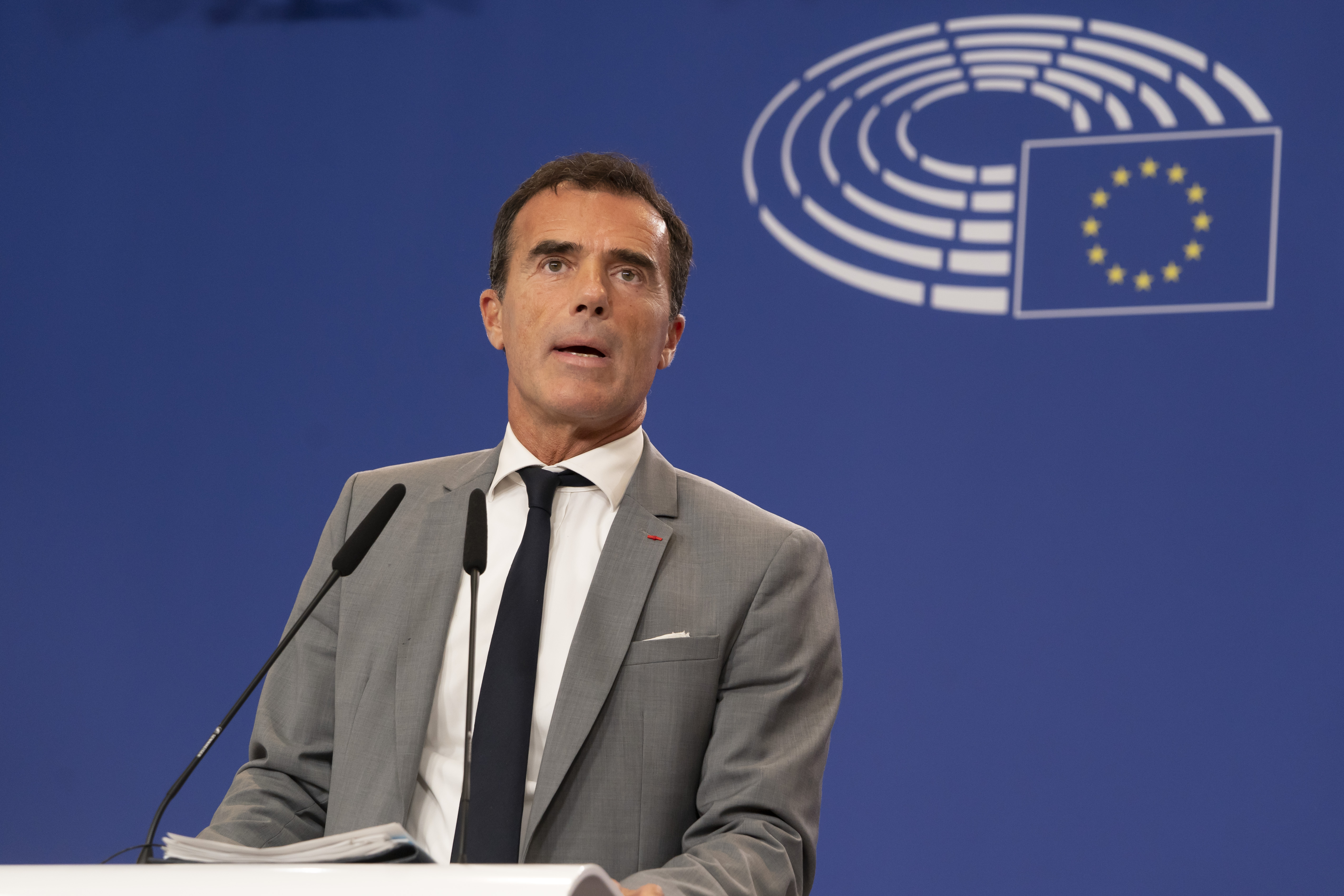EU anti-greenwashing law torpedoed after Commission’s shock U-turn
Much-awaited directive banning businesses from making false green claims hits a wall after EU executive signals it will withdraw its proposal for a Green Claims Directive days before final negotiations following right-wing pressure.
A flagship EU anti-greenwashing law is all but dead after the bloc’s executive body declared it intended to withdraw the proposal last Friday, following pressure from right-wing parties.
The European Commission’s announcement came as a “major surprise” and triggered a sequence of events that left EU negotiators powerless to hold final talks to agree on the law, which were due to take place on Monday.
The Green Claims Directive, which had been in the making since 2023, would require businesses to provide clear evidence for any claims on the environmental benefit of their product or brands – half of which are currently estimated to be false. It was, however, criticised for being too complex, putting an unreasonable burden on businesses and stifling companies’ competitiveness.
Today's victims are European consumers and companies that are truly sustainable
At a special press conference on Monday afternoon, Tiemo Wölken, a centre-left member of European Parliament (MEP) in charge of coordinating negotiations on the proposal, said: “Today's victims are European consumers and companies that are truly sustainable.
“The Green Claims Directive would have protected consumers from products with misleading claims being placed on the market, and would have protected real sustainable companies all over Europe from unfair competition.”
How it happened
Last week, three conservative and far-right groupings in the EU parliament sent letters to the EU Commission calling for the Green Claims proposal to be scrapped, saying it was overly complex and burdensome for businesses, and would hurt competitiveness – a new priority for the bloc.
Following this, at a press briefing on Friday, a spokesperson for the EU Commission stated: “I can say that in the current context, indeed the Commission intends to withdraw the Green Claims Proposal.”
The announcement was made three days before key negotiations were due to finalise the proposal between the EU Commission, members of the European Parliament and the European Council (which includes government representatives of the 27 member states).
Over the weekend, Italy withdrew its support for the directive due to the Commission’s announcement, Wölken said, meaning the Green Claims proposal no longer had a majority in favour among the 27 EU member states, which is needed to agree on a law.
On Monday morning, the Commission appeared to soften its stance and suggested it could still put forward the proposal if microbusinesses were exempt from the rules.
Still, Monday’s planned negotiations between the EU Parliament, the European Council and the Commission were cancelled, and no indication was given that they would take place at a later date.

In the EU legislative process, the Commission's role is to propose legislation, which needs approval from both the Council and Parliament to be adopted, often after several amendments are made. After several rounds of negotiations, if the Council and/or Parliament rejects it, the proposal fails and the process ends.
Wölken said MEPs stood ready to start negotiations again, should the Commission change its mind. But as it stands supportive MEPs have few avenues left to put pressure on the Commission, which is theoretically able to withdraw a legislative proposal at any stage of the process, although it is a very exceptional move, said Wölken.
He added that there was an “institutional understanding” that the Parliament and Council could express their disagreement, but further actions like taking the Commission to court were unlikely to succeed.
Simplification: a “convenient” excuse?
The Green Claims Directive appears to be the latest victim of a drive to cut red tape in order to increase the bloc’s competitiveness, which has so far led to key corporate sustainability reporting directives to be diluted or slashed under a so-called ‘Omnibus simplification package’.
Toby Gazeley, policy lead at European social enterprise network Euclid, said: “It’s disappointing, because the Green Claims Directive was a big deal, and that went along with… a package of directives that was going to make companies have to report, have to care, and not lie about it.”
Concerns are rising that the EU is moving away from its broader “Green Deal” agenda (a series of policy measures aiming to make the bloc carbon neutral by 2050), which has come under fire from various industry groups and politicians arguing that it would add pressure on businesses, increase costs and altogether make the bloc less competitive.
“It used to look like the EU was leading the way and demonstrating how regulation could help deliver the green transition in a meaningful way,” Gazeley added. “Now it looks like they want to continue to think they’re doing something, without going through the hard work… The simplification argument seems convenient.”
- Read more: Battle lines drawn for EU Green Deal
Party politics and false excuses
If the law proposal is indeed scrapped, it could take years to start from scratch. “Nothing in Brussels moves fast,” Gazeley warned.
He explained there are currently deep divisions among EU political groupings and countries on what to prioritise – whether that’s defence, sustainability or competitiveness, making it difficult to know how things are going to play out.

Sandro Gozi, a centrist MEP also co-ordinating negotiations on the Green Claims proposal, on Monday accused the Commission of “taking instructions” from the far-right, with the decision to withdraw the law coming as a “major surprise” to proponents of the law.
He argued efforts had already been made to amend the Green Claims Directive in line with the Commission’s recent focus on simplification and business competitiveness.
We want to empty the table from false excuses
He added that the issue of microbusinesses, put forward by the executive as a reason for its shock announcement to withdraw the proposal, was expected to be resolved at Monday’s meeting – the inference being that the Commission retrospectively made up an issue that didn’t exist.
“We want to empty the table from false excuses,” Gozi said. “Lack of simplification? False excuse, we’re working to simplify the text. Micro-enterprises? False excuse, we would have exempted micro enterprises in [today’s negotiations].”
Pioneers Post contacted the Commission for comment but at the time of publication had not yet received a response.
Header image: EU Commission president Ursula Von Der Leyen (left), pictured with far-right Italian Prime Minister Giorgia Meloni on 20 June. Von der Leyen is said to have been under pressure from rightwing parties to withdraw the proposal. Copyright: Christophe Licoppe/European Union, 2025.
| Ready to invest in independent, solutions-based journalism?
Our paying members get unrestricted access to all our content, while helping to sustain our journalism. Plus, we’re an independently owned social enterprise, so joining our mission means you’re investing in the social economy. |




